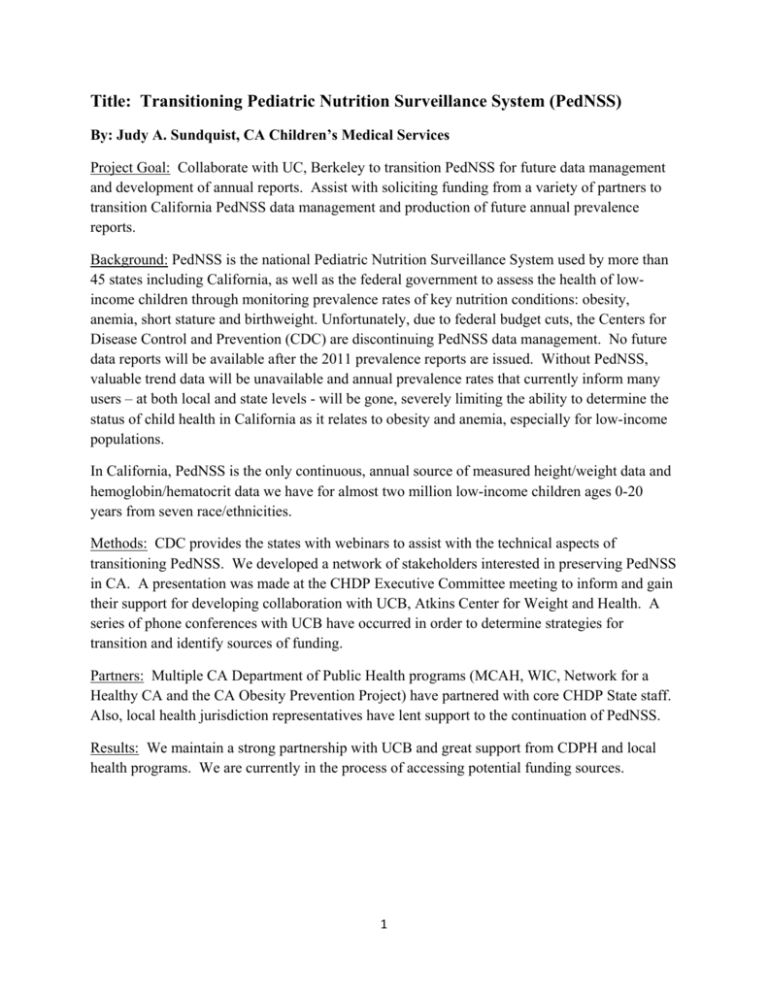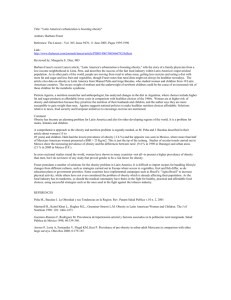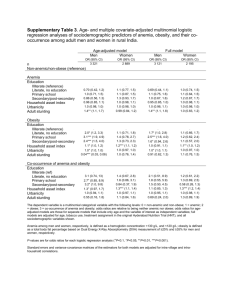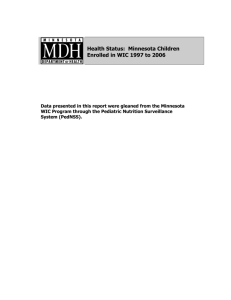Title: Transitioning Pediatric Nutrition Surveillance System (PedNSS)
advertisement

Title: Transitioning Pediatric Nutrition Surveillance System (PedNSS) By: Judy A. Sundquist, CA Children’s Medical Services Project Goal: Collaborate with UC, Berkeley to transition PedNSS for future data management and development of annual reports. Assist with soliciting funding from a variety of partners to transition California PedNSS data management and production of future annual prevalence reports. Background: PedNSS is the national Pediatric Nutrition Surveillance System used by more than 45 states including California, as well as the federal government to assess the health of lowincome children through monitoring prevalence rates of key nutrition conditions: obesity, anemia, short stature and birthweight. Unfortunately, due to federal budget cuts, the Centers for Disease Control and Prevention (CDC) are discontinuing PedNSS data management. No future data reports will be available after the 2011 prevalence reports are issued. Without PedNSS, valuable trend data will be unavailable and annual prevalence rates that currently inform many users – at both local and state levels - will be gone, severely limiting the ability to determine the status of child health in California as it relates to obesity and anemia, especially for low-income populations. In California, PedNSS is the only continuous, annual source of measured height/weight data and hemoglobin/hematocrit data we have for almost two million low-income children ages 0-20 years from seven race/ethnicities. Methods: CDC provides the states with webinars to assist with the technical aspects of transitioning PedNSS. We developed a network of stakeholders interested in preserving PedNSS in CA. A presentation was made at the CHDP Executive Committee meeting to inform and gain their support for developing collaboration with UCB, Atkins Center for Weight and Health. A series of phone conferences with UCB have occurred in order to determine strategies for transition and identify sources of funding. Partners: Multiple CA Department of Public Health programs (MCAH, WIC, Network for a Healthy CA and the CA Obesity Prevention Project) have partnered with core CHDP State staff. Also, local health jurisdiction representatives have lent support to the continuation of PedNSS. Results: We maintain a strong partnership with UCB and great support from CDPH and local health programs. We are currently in the process of accessing potential funding sources. 1







